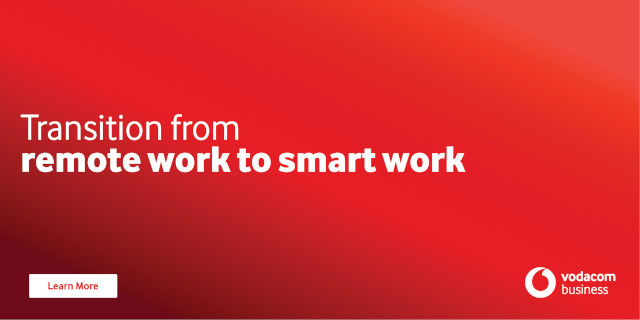Business News sponsored by Vodacom Transformation of Work:
An average South African household could be spending as much as R480 extra on their monthly electricity bills from April, translating to an additional R5 760 each year. This is according to Alumo Energy Business Director Jean-Phillipe Ghyoot, who crunched the numbers to demonstrate the growing impact that continuous double-digit tariff hikes are having on household budgets.
The National Energy Regulator of South Africa (NERSA) approved a 12.74% increase for 2024/2025 in January, which will impact Eskom-supplied customers from 01 April, and municipal customers from 01 July this year. This comes on top of the 18.65% increase implemented in July last year, adding insult to injury after the record levels of load shedding experienced in 2023.
“There’s no sugarcoating South Africa’s situation right now regarding power, whether at home or in the workplace. We not only have an unreliable supply, but we are also facing a second front of attack in the form of ongoing price hikes,” notes Ghyoot.
“The impact of load shedding on our daily lives, work, and businesses means that alternative energy sources, both at home and at work, are now no longer luxuries, but necessities. And, given the dramatic price increases implemented each year, the investment case for solar systems is stronger than ever.”
The impact of electricity price increases in real terms
Demonstrating the point, Alumo calculated how much an average five-member family, including three children, living in Pretoria will be paying from April compared to one, three, and five years ago. Assuming this family consumes some 12,000 kWh per year, their bill at City of Tshwane “domestic supply” rates would currently total some R3,800 per month or R45 600 per year in terms of 2023/2024 rates.
The exact price adjustments at municipal levels following the April increase have yet to be announced. But, should this family’s prices leap by 12.74%, their bill would soar to over R4 300 per month or nearly R51 600 per year, placing even greater strain on budgets.
Just three years ago, this same family would have been paying about R3,000 each month or R36,000. But, further underscoring the impact of dramatic price hikes, their bill five years ago would have totalled about R2,500 per month or R30,000 per year – a difference of more than R21,600 on electricity alone.
The picture is no better when seen within a continental scale. According to GlobalPetrolPrices.com, the South African consumer currently pays 250% of what the average Nigerian pays; electricity in Zimbabwe is 97% cheaper than ours; and only nine other countries on the continent are subject to higher tariffs than we are. And all these calculations do not yet account for the increased rates for 2024.
“By contrast, a well-designed solar system tailored to households’ specific energy requirements, that balances costs versus energy benefits, should offer savings of at least 65% on electricity bills. In our example, had this household installed a solar system, they would have accumulated savings of approximately R43,000 in electricity costs over the last three years,” explains Ghyoot.
No longer a question of ‘if’, but ‘when’
We are now past the point of questioning whether to install backup power, he adds.
“Bear in mind that the cost of alternative power solutions has remained steady over the past few years, whilst the electricity price soars, representing increasing savings over time. As a result, the cost benefit keeps leaning towards power alternatives as an attractive long-term investment.”
Naturally, the issue of immediate affordability comes to mind, and Alumo has anticipated this hurdle: “We’ve created various payment packages, and even a rent-to-buy option, which allows families to install a system immediately, and then pay for it as their income allows.” However, alternative power isn’t a one-size-fits-all solution, and consumers should be wary of being sold a system that’s beyond their requirements. “We assemble power packages for different dwellings or businesses,” Ghyoot continues, “dependent upon their needs and building size.” He adds that Alumo does maintenance of most reputable alternative power systems, whether they themselves installed the system or not.
“We also have a 24-hour phone hotline, which drives a 48-hour onsite-repair deadline. We’re sure that consumers will find this handy, as nobody wants to go from Eskom downtime to downtime on their power backup.
“Ultimately, for the foreseeable future, ‘life as normal’ isn’t going to happen; certainly with regard to our electricity supply. We will need to take extraordinary steps, and it makes sense to see a quality solar system installed by professionals as an important long-term investment that can save on electricity and even add to the value of your property.”

.jpg)




